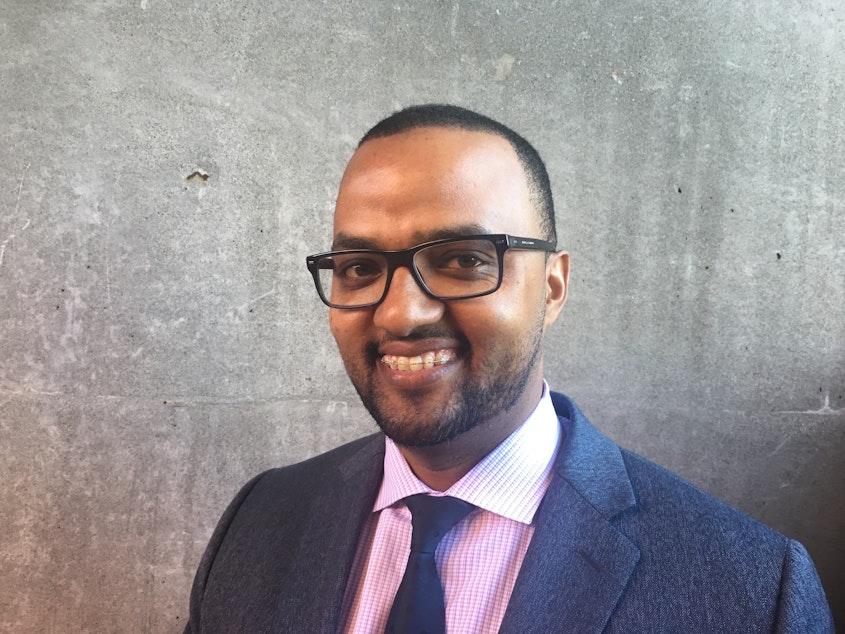Last year was a wake-up call for Seattle's East African Community

Seattle is home to one of the nation's largest East African communities.
An estimated 25,000 East Africans live in King County, according to the 2014 American Community Survey.
It's a community that consists of mostly recent immigrants and refugees from countries like Ethiopia, Somalia and Eritrea.
But when they arrive things don't automatically get easier. Many face a language barrier, difficulty finding jobs and for young East African men, there's also violence.
"We had about four murders last summer. Most, if not all, involved young East African men, gunned down in our streets," said Habtamu Abdi, the Seattle Police Department's East African community liaison.
Sponsored
Abdi is the first person to hold this position. He started with SPD last September, in part as a response to the violence.
Abdi was born and raised in Ethiopia and SPD is hoping he can also help foster trust between East Africans living here and the police department.
It's an aim that's especially relevant now following the recent death of Hamza Warsame, a young Somali boy last December. Following his death, rumors floated that Warsame was the victim of a hate crime.
In response, the East African community called for an investigation into his death. Last May, SPD concluded his death was an accident. Despite the finding, trust issues remain.
"My personal philosophy is trust is not something you build and then you wrap up and say it's done," Abdi said. "Trust is something you continue working on. It's always a work in progress."
Sponsored
To address this, the police department created a series of programs and events to provide opportunities for members of Seattle's East African community to engage with police officers. Last month Abdi organized a Ramadan event where deputy chief Carmen Best joined members of the East African community for dinner.
KUOW's Deborah Wang asked Abdi if he personally, as a person of color, has experienced any problems with the police. Abdi said as a father, he understands that fear.
"But what makes me stronger and walk away from my fear is that on a daily basis, I try all my best to narrow those communication gaps. That way I, or my kid, or someone who looks like me will not be a victim of that problem."
But if there's one thing Abdi would like to see SPD to improve on, he would like to see more East African police officers. Currently there is only one police officer with SPD from the East African community.
"I was very impressed by the statement made by the chief from Texas after the incident [shooting of five police officers in Dallas]. He said, 'We are hiring.' And if you're really concerned about others targeting your community, come and join and serve your own community," Abdi said.

